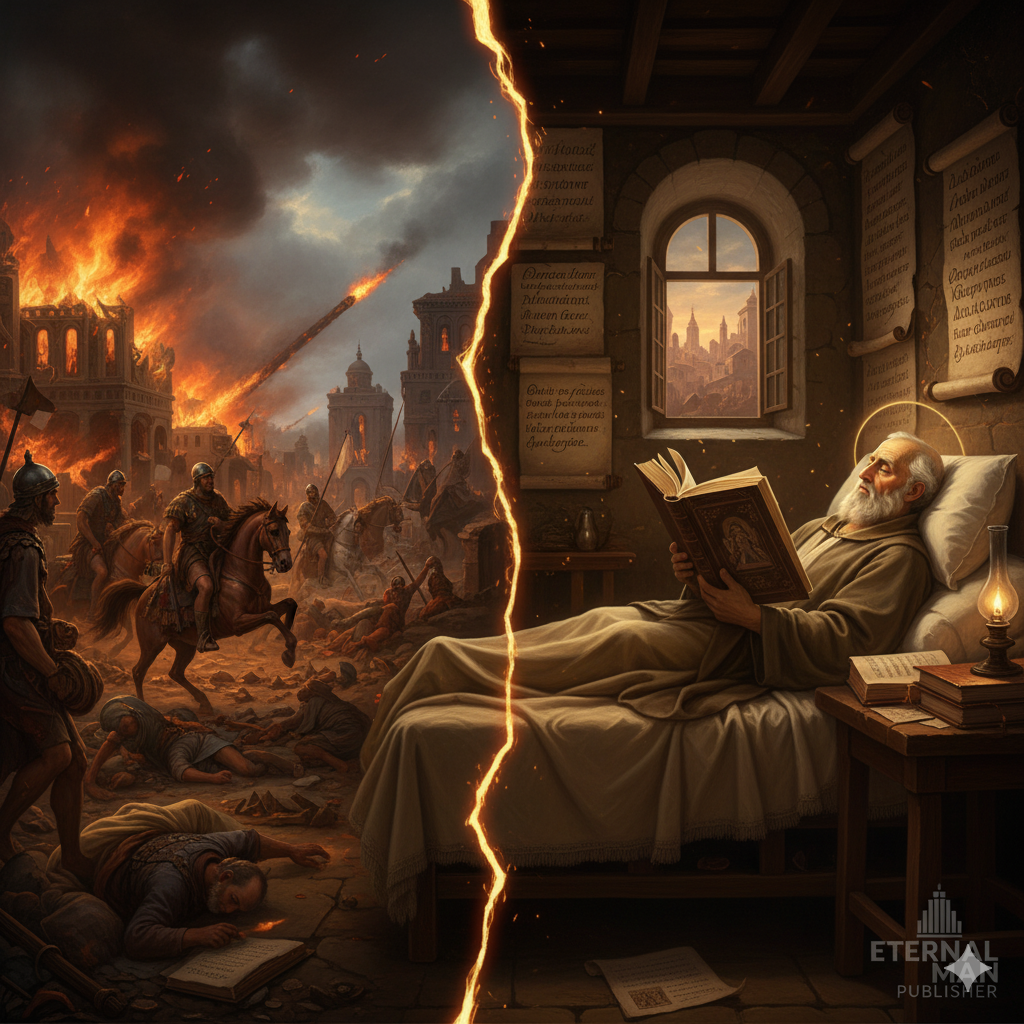Introduction: Hippo’s Last Stand
By 430 A.D., the Western Roman Empire was in its death throes. In North Africa, the Vandal horde, led by the feared Gaiseric, marched relentlessly, destroying cities. The last remaining refuge was Hippo, the episcopal city of an aging and ailing man: St. Augustine.
The setting of his death is not one of a tranquil bedside, but of a besieged city. This final moment—of inner calm against outer chaos—is the ultimate proof of Augustine’s philosophy of life, reflected in the Confessions and all his works.
The Siege and the Bishop’s Choice
As the Vandals approached, panic seized the population. Many clerics wondered if they should flee or stay. Augustine was firm: a shepherd must remain with his flock, especially in times of danger.
-
The Drama of Hippo: For 14 months, the Vandals besieged the city. People died from starvation and disease. Augustine witnessed the collapse of social order and the loss of everything materially secure.
-
The Final Answer to Crisis: Augustine’s last great concern was the fate of the books and library of his diocese—the intellectual treasure of years of work. He knew that while the walls were falling, ideas were the only thing that would survive to rebuild the future.
Death in Contemplation
In the final months of the siege, Augustine fell ill. Instead of focusing on the battles outside the walls, he chose to focus on his final, inner battle.
His last act of faith is a powerful testament. He ordered the Penitential Psalms to be copied and hung on the walls of his room. He spent his final days in prayer and contemplation, asking not to be disturbed.
He died on August 28, 430 A.D., while the sounds of war echoed outside. His death under siege underscores the central message of The City of God and the Confessions: true security lies in the spirit, not in the walls of a city.
The Triumph of the Word
Although Hippo fell and was sacked shortly after Augustine’s death (some accounts say the fire miraculously spared his library), his legacy was intact. The Vandals took the gold, but copies of his works—including the Confessions—had already spread and were safe.
Augustine’s death, amidst one of the greatest disasters in Roman history, was not a tragic end, but a triumph of priority. He proved that introspection and the pursuit of the eternal are the last bastions of strength when all else fails.
The story of Augustine's death is an invitation to re-evaluate what truly matters. His final days reveal the essence of his wisdom.
Discover the strength of the faith that withstood armies. Acquire the work that defined him. Your Eternal Man Publisher edition of Confessions of St. Augustine is waiting for you.
Click here and purchase: https://eternalmanpublisher.com/products/saint-augustine?variant=47621813862650
